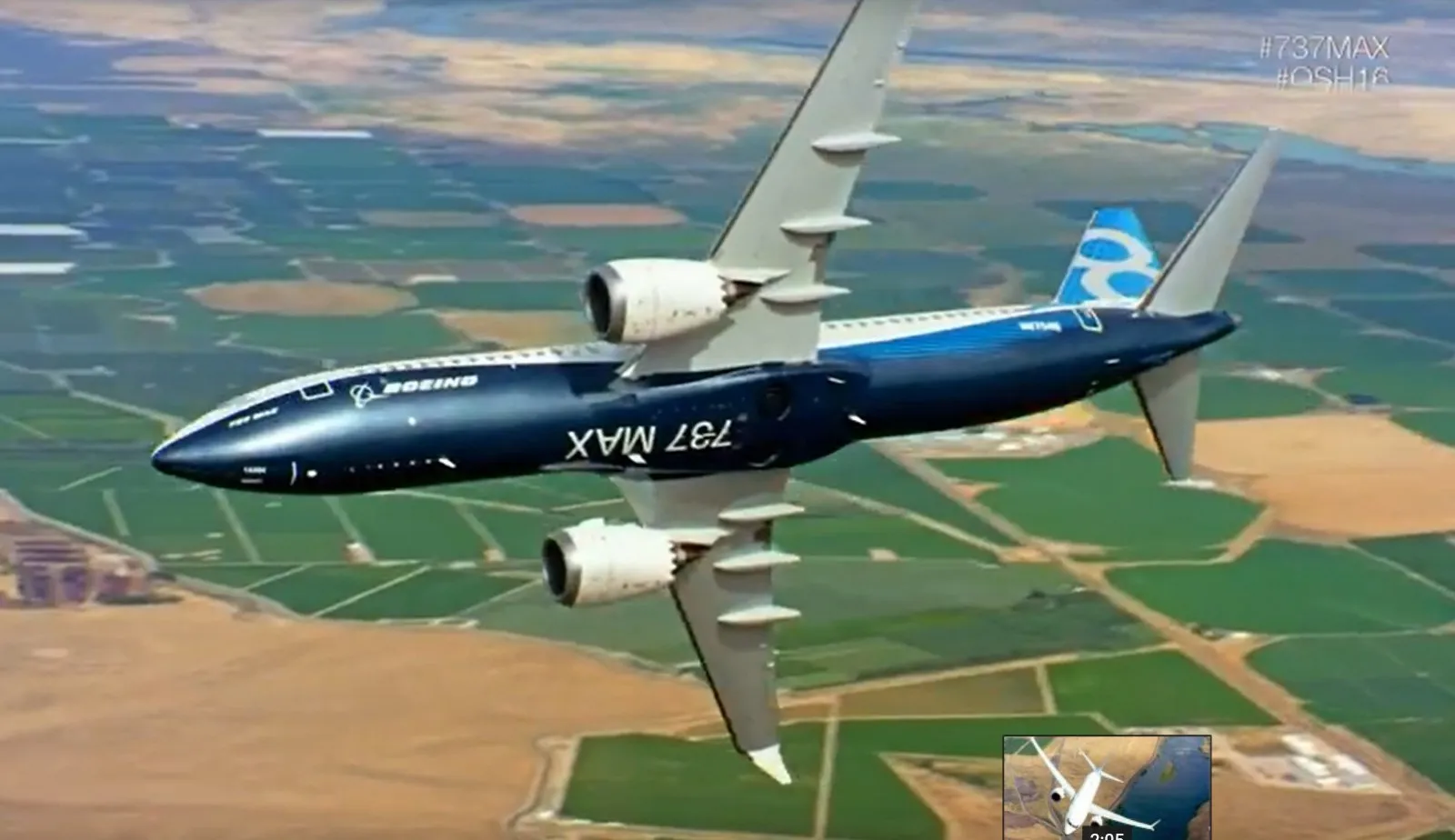
Boeing predicts renewed post-pandemic fleet will cut CO2
Jul 30, 2021

Boeing has forecasted that the post-pandemic recovery of the aviation sector will lead to a significant reduction in carbon dioxide emissions. As airlines modernize their fleets with more fuel-efficient aircraft, the overall environmental impact of air travel is expected to decrease. The company emphasizes that advancements in technology and sustainable practices will play a crucial role in achieving these emissions reductions. With a focus on sustainability, the aviation industry aims to balance growth with environmental responsibility, ultimately contributing to global efforts to combat climate change while meeting the increasing demand for air travel.
The aviation industry has been significantly impacted by the COVID-19 pandemic, but as travel resumes, Boeing is optimistic about the future of air travel. They predict a "renewed post-pandemic fleet" that will not only revitalize the industry but also lead to substantial reductions in "CO2 emissions". This outlook is based on advancements in aircraft technology, increased efficiency, and a growing commitment to sustainability among airlines.
The Shift Towards Sustainable Aviation
As the world emerges from the pandemic, airlines are increasingly focused on sustainability. Boeing's projections indicate that newer aircraft models will contribute to a more environmentally friendly fleet. These newer models are designed with "fuel efficiency" in mind, utilizing advanced aerodynamics and lighter materials to reduce overall weight and increase fuel economy.
The shift towards a more sustainable aviation sector is driven by regulatory pressures, public demand, and corporate responsibility. Airlines are now more aware of their carbon footprints and are taking steps to mitigate their impact on the environment. This has led to a growing interest in "sustainable aviation fuels (SAFs)" and innovations in aircraft technology.
Advancements in Aircraft Technology
Boeing's commitment to innovation is at the forefront of its strategy to reduce "CO2 emissions". The company is investing heavily in research and development to create aircraft that are not only more efficient but also capable of operating on alternative fuels. For instance, the introduction of the "Boeing 787 Dreamliner" has already shown significant improvements in fuel efficiency, with the ability to reduce emissions by up to 20% compared to older models.
Additionally, Boeing's focus on the "737 MAX" series highlights its commitment to creating aircraft that are environmentally friendly. The 737 MAX incorporates new engine technology and aerodynamic improvements that contribute to lower fuel consumption and reduced emissions, making it a popular choice for airlines looking to modernize their fleets.
The Role of Sustainable Aviation Fuels (SAFs)
In conjunction with fleet modernization, the adoption of "sustainable aviation fuels (SAFs)" is crucial to achieving significant reductions in CO2 emissions. SAFs are produced from renewable resources and can reduce lifecycle carbon emissions by up to 80% compared to traditional jet fuel. Boeing is actively collaborating with fuel producers and airlines to facilitate the broader adoption of SAFs across the aviation industry.
Airlines are recognizing the importance of SAFs in their sustainability goals, with many committing to using a certain percentage of SAF in their fuel supply. This commitment not only helps reduce emissions but also enhances the airline's reputation as an environmentally responsible entity. The chart below illustrates the projected growth of SAF production over the next decade:
| Year | SAF Production (Million Gallons) |
|---|---|
| 2023 | 5 |
| 2025 | 50 |
| 2030 | 500 |
| 2035 | 1,000 |
Impact on the Environment
The combination of a renewed fleet and the adoption of sustainable aviation fuels is expected to have a profound impact on the aviation sector's overall emissions. According to Boeing's analysis, the global fleet could achieve a reduction of "1.8 billion metric tons of CO2" by 2035 if airlines commit to modernizing their fleets and adopting SAFs. This reduction is equivalent to the annual emissions of over 390 million cars.
Furthermore, as global travel demand continues to rebound post-pandemic, the aviation industry faces the challenge of meeting this demand while minimizing its environmental impact. The transition to a more sustainable fleet is not just a trend; it is a necessity for the future of air travel.
Conclusion
Boeing's predictions for a renewed post-pandemic fleet highlight the potential for significant reductions in CO2 emissions through technological advancements and sustainable practices. The aviation industry is at a pivotal moment, where the choices made today will shape the future of air travel and its impact on the planet. By investing in a modern fleet and embracing sustainable aviation fuels, airlines can contribute to a greener future while ensuring that air travel remains a viable and responsible option for passengers worldwide.
Related Articles

Explore Thailand: The Best Islands to Visit for Paradise, Adventure, and Relaxation

The Ultimate Guide to the Best Islands in Thailand for Your Next Getaway

Do babies need passports? How to get a passport for a newborn

How to get a U.S. passport fast: here’s how to expedite the process

What is Mobile Passport Control: 5 reasons why you should use it

SENTRI vs. Global Entry: A detailed guide

Do you need a passport to go to the Bahamas? Let’s find out

Do you need a passport to go to Mexico? A detailed guide

Do you need a passport to go to Canada? We got the answer

Do You Need a Passport for a Cruise: An Essential Travel Guide

Booster Seat Requirements: All the Rules to Follow in Your Rental Car

What Are the World’s Most Powerful Passports, and How Does Yours Rank?

How to Take a Passport Photo at Home: A Helpful Guide

You've got to have heart! Southwest's new livery

Your opinion: Should water be free on low cost carriers?

Young women bolder than guys as solo travellers
